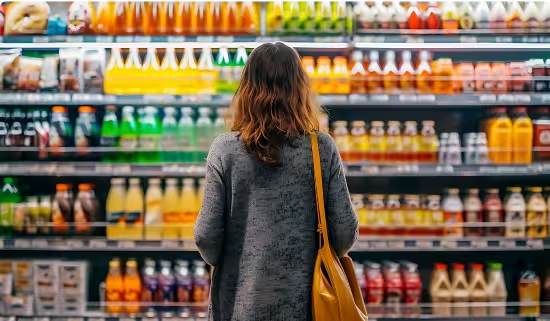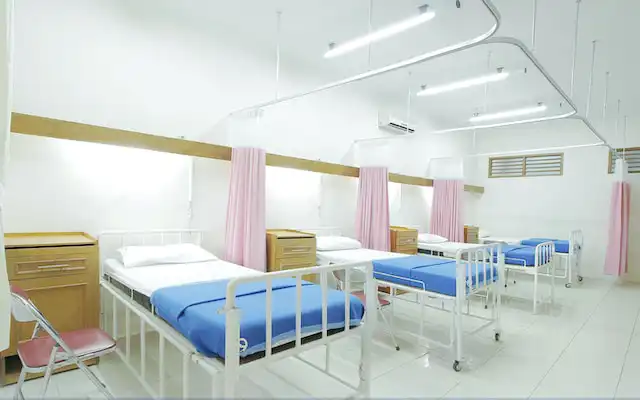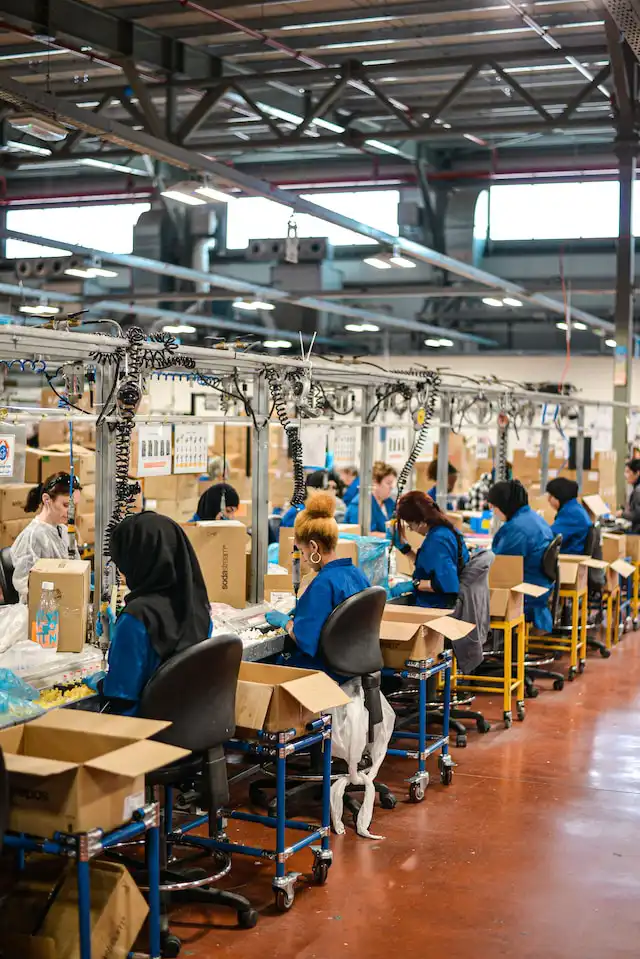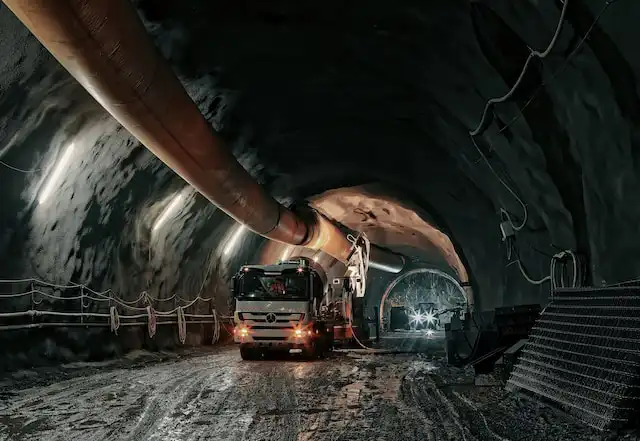
India Flooring Market Outlook to 2030
Region:Asia
Author(s):Shreya
Product Code:KROD3807
October 2024
83
About the Report
India Flooring Market Overview
The India flooring market is valued at USD 9.87 billion, driven by robust growth in the construction and real estate sectors. Major contributors include the rise in residential housing, urbanization, and government initiatives like Housing for All which have boosted demand. The adoption of innovative materials such as vinyl and laminated flooring, known for their durability and cost-effectiveness, has also contributed to this market's steady expansion. Market demand is primarily fueled by rapid urbanization and construction of commercial spaces, particularly in metropolitan cities.

Indias flooring market dominance can be observed in regions such as Maharashtra, Karnataka, and Tamil Nadu, due to their extensive urban development projects and higher disposable incomes. Cities like Mumbai, Bengaluru, and Chennai are hubs for real estate growth, which propels the flooring market in these areas. These regions also attract significant foreign investment in infrastructure, which further consolidates their dominance in the flooring market.
The adoption of certifications like Leadership in Energy and Environmental Design (LEED) and Indian Green Building Council (IGBC) has gained momentum in the Indian flooring market. By 2024, over 8,500 buildings have applied for LEED and IGBC certifications, according to the Indian Green Building Council. These certifications ensure that buildings, including their flooring, meet sustainable and eco-friendly standards. Flooring materials certified by these programs are becoming more popular among both residential and commercial developers who want to reduce environmental impact and gain government incentives for green buildings.
India Flooring Market Segmentation
By Product Type: The market is segmented by product type into ceramic tiles, vinyl flooring, wood flooring, stone flooring, and carpet flooring. Ceramic tiles have a dominant market share due to their affordability, durability, and extensive use in both residential and commercial buildings. Their moisture resistance and ease of maintenance make them a popular choice for flooring in Indian homes. Additionally, their availability in a variety of designs and finishes ensures high demand across all consumer segments, particularly in urban areas with evolving aesthetic preferences.

By End-Use: The market is also segmented by end-use into residential, commercial, industrial, and institutional. The residential sector holds the largest market share due to the rapid growth in housing projects and urbanization. Increasing disposable income and government-backed housing schemes have spurred demand for high-quality yet affordable flooring options, such as vinyl and ceramic tiles. The commercial sector, particularly offices and retail spaces, is also growing steadily as businesses expand, contributing to increased flooring demand.

India Flooring Market Competitive Landscape
The India flooring market is characterized by the presence of several key players, both domestic and international. The market is highly competitive with companies constantly innovating to meet the evolving needs of consumers. The competition is particularly strong in segments like ceramic tiles and vinyl flooring, where players compete on price, quality, and product variety. Additionally, international companies like Armstrong Flooring and Pergo have also established a presence in India, further intensifying competition.
|
Company |
Establishment Year |
Headquarters |
Product Portfolio |
Production Capacity |
R&D Investment |
Geographic Reach |
Revenue (USD) |
Number of Employees |
|---|---|---|---|---|---|---|---|---|
|
Kajaria Ceramics Ltd. |
1988 |
Delhi |
||||||
|
Somany Ceramics Ltd. |
1969 |
Gujarat |
||||||
|
Asian Granito India Ltd. |
2000 |
Gujarat |
||||||
|
Armstrong Flooring |
1860 |
Pennsylvania, US |
||||||
|
Pergo India |
1977 |
Delhi |
India Flooring Industry Analysis
Growth Drivers
Urbanization: Indias rapid urbanization has significantly increased demand for modern flooring solutions in residential and commercial spaces. In 2024, over 483 million people live in urban areas, according to the Ministry of Housing and Urban Affairs. This growing urban population drives infrastructure development, with significant emphasis on flooring, especially in new housing developments. Government initiatives like the Smart Cities Mission further push for better-quality flooring solutions in public and commercial buildings, increasing demand for durable, cost-efficient materials like ceramic tiles and vinyl flooring. Urbanization is crucial in reshaping the construction and flooring market to meet modern demands.
Increase in Residential & Commercial Construction: Increased construction activity in both the residential and commercial sectors is driving the flooring market in India. According to the Ministry of Statistics and Programme Implementation (MoSPI), around 1.5 million housing units were under construction in 2024 as part of various affordable housing schemes. The commercial construction sector is also growing due to rising demand for office spaces, malls, and hotels. This surge in construction creates opportunities for flooring companies to supply materials, especially advanced solutions like modular and eco-friendly options, for both interior and exterior applications.
Shifts in Consumer Preferences for Aesthetic Appeal: Consumer preferences in India are increasingly shifting towards aesthetically appealing flooring options. The National Institute of Fashion Technology (NIFT) notes that contemporary Indian consumers prioritize design and texture in flooring. In 2024, demand for premium flooring options such as marble and luxury vinyl tiles (LVT) has grown significantly, with the luxury residential market driving this trend. Approximately 12 million square feet of luxury residential space is expected to be completed in 2024, with a large portion of it adopting aesthetically driven flooring solutions.
Market Challenges
Environmental Concerns Regarding Sustainable Sourcing: The flooring market in India is facing growing scrutiny over the environmental impact of sourcing raw materials. According to the Ministry of Environment, Forest and Climate Change (MoEFCC), deforestation due to wood extraction for flooring products contributes significantly to environmental degradation. In 2024, approximately 23,000 hectares of forest land were affected by timber extraction, raising sustainability concerns. Consumers and regulatory bodies are increasingly pushing for eco-friendly alternatives, putting pressure on companies to adopt sustainable sourcing practices.
High Installation Costs for Advanced Flooring Solutions: While advanced flooring solutions like marble and engineered wood offer superior aesthetic appeal and durability, they come with high installation costs. The Ministry of Labour and Employment notes that labor wages for specialized flooring installation have risen in 2023, making it difficult for contractors to keep costs within budget, especially in large-scale commercial and government projects. These higher costs limit the adoption of premium flooring solutions, particularly in mid-range and affordable housing projects.
India Flooring Market Future Outlook
Over the next five years, the India flooring market is expected to witness significant growth, driven by increasing demand for cost-effective and aesthetically appealing flooring solutions. The rise in urbanization, coupled with government support for infrastructure projects, will continue to drive growth in residential and commercial segments. Technological advancements in flooring materials, such as waterproof and eco-friendly options, will play a crucial role in shaping the future of the market. Additionally, the growing preference for modular flooring systems in commercial spaces will present lucrative opportunities for market expansion.
Future Market Opportunities
Growth of the Commercial Sector: The commercial sector, particularly in metro cities like Mumbai, Delhi, and Bengaluru, is witnessing significant growth in 2024. According to the Ministry of Commerce, over 2,500 new commercial projects, including hotels, office spaces, and retail outlets, were under development by mid-2024. These developments create opportunities for the flooring market, as high-quality, durable, and aesthetically appealing flooring materials are increasingly demanded in high-traffic commercial spaces. Modular and smart flooring options are becoming popular in these settings due to their ease of maintenance and longevity.
Expansion of Digital & Smart Flooring Technologies: India is experiencing increased interest in digital and smart flooring technologies in both commercial and industrial sectors. The National Institution for Transforming India (NITI Aayog) reported that more than 1,200 smart infrastructure projects are underway in India, many of which are adopting advanced digital flooring systems. These smart floors offer capabilities like footfall tracking, heat regulation, and energy efficiency, catering to the needs of high-tech buildings and industrial warehouses. The flooring industry can benefit by aligning product innovations with the growing smart city initiatives across India.
Scope of the Report
|
Segment |
Sub-segments |
|---|---|
|
Product Type |
Ceramic Tiles Stone Flooring Vinyl Flooring Laminate Flooring Wood Flooring |
|
Application |
Residential Commercial Industrial Healthcare Retail |
|
Distribution Channel |
Direct Sales Retail Sales E-commerce |
|
Material |
PVC Wood Vinyl Stone |
|
Region |
North South East West |
Products
Key Target Audience
Flooring Manufacturers
Real Estate Developers
Construction Companies
Architects and Interior Designers
Government Agencies (Housing and Urban Development, Bureau of Indian Standards)
Investments and Venture Capitalist Firms
Raw Material Suppliers
Banks and Financial Institutes
Companies
Players Mentioned in the Report
Kajaria Ceramics Ltd.
Somany Ceramics Ltd.
H&R Johnson (India) Ltd.
Asian Granito India Ltd.
Nitco Tiles
RAK Ceramics India
Welspun Flooring Ltd.
Armstrong Flooring India
Orient Bell Ltd.
AGL Tiles
Greenlam Industries
Classen India
Pergo India
Adore Floors India
Balterio Flooring India
Table of Contents
1. India Flooring Market Overview
1.1. Definition and Scope
1.2. Market Taxonomy
1.3. Market Growth Rate
1.4. Market Segmentation Overview
2. India Flooring Market Size (In INR Bn)
2.1. Historical Market Size
2.2. Year-On-Year Growth Analysis
2.3. Key Market Developments and Milestones
3. India Flooring Market Analysis
3.1. Growth Drivers
3.1.1. Urbanization and Real Estate Expansion
3.1.2. Rising Infrastructure Investments
3.1.3. Increasing Demand for Sustainable Flooring (Eco-friendly Materials)
3.1.4. Evolving Consumer Preferences (Aesthetic Trends, Customization)
3.2. Market Challenges
3.2.1. High Costs of Premium Flooring Materials
3.2.2. Fragmented Supply Chain (Logistics, Procurement)
3.2.3. Lack of Skilled Labor for Advanced Flooring Installations
3.3. Opportunities
3.3.1. Growth in Renovation Projects
3.3.2. Expansion in Tier-II and Tier-III Cities
3.3.3. Technological Advancements in Flooring Solutions (Smart Flooring, Acoustic Floors)
3.4. Trends
3.4.1. Shift Toward Luxury Vinyl Tiles (LVT) and Engineered Wood
3.4.2. Adoption of Green and Sustainable Flooring Materials (Bamboo, Recycled Products)
3.4.3. Demand for Anti-slip and Waterproof Flooring
3.5. Government Regulation
3.5.1. Bureau of Indian Standards (BIS) Flooring Guidelines
3.5.2. Green Building Certification Requirements (IGBC, LEED)
3.5.3. Tax Benefits for Infrastructure Projects (GST Framework)
3.6. SWOT Analysis
3.7. Stakeholder Ecosystem
3.8. Porters Five Forces Analysis
3.9. Competitive Ecosystem
4. India Flooring Market Segmentation
4.1. By Product Type (In Value %)
4.1.1. Ceramic Tiles
4.1.2. Stone Flooring
4.1.3. Vinyl Flooring
4.1.4. Laminate Flooring
4.1.5. Wood Flooring
4.2. By Application (In Value %)
4.2.1. Residential
4.2.2. Commercial
4.2.3. Industrial
4.2.4. Healthcare
4.2.5. Retail
4.3. By Distribution Channel (In Value %)
4.3.1. Direct Sales
4.3.2. Retail Sales
4.3.3. E-commerce
4.4. By Material (In Value %)
4.4.1. PVC
4.4.2. Wood
4.4.3. Vinyl
4.4.4. Stone
4.5. By Region (In Value %)
4.5.1. North
4.5.2. South
4.5.3. East
4.5.4. West
5. India Flooring Market Competitive Analysis
5.1. Detailed Profiles of Major Companies
5.1.1. Kajaria Ceramics
5.1.2. Somany Ceramics Ltd.
5.1.3. Asian Granito India Ltd.
5.1.4. Nitco Tiles
5.1.5. Johnson Tiles
5.1.6. H&R Johnson (India)
5.1.7. Orient Bell
5.1.8. Greenply Industries Ltd.
5.1.9. Armstrong World Industries
5.1.10. Welspun Flooring
5.1.11. Century Plyboards
5.1.12. Blue Star
5.1.13. RAK Ceramics
5.1.14. Marazzi
5.1.15. Saint-Gobain India
5.2. Cross Comparison Parameters (No. of Employees, Manufacturing Capacity, Revenue, Market Share, Market Reach, Product Portfolio, Distribution Network, Market Penetration Strategy)
5.3. Market Share Analysis
5.4. Strategic Initiatives (Partnerships, Expansions)
5.5. Mergers and Acquisitions
5.6. Investment Analysis
5.7. Venture Capital Funding
5.8. Private Equity Investments
6. India Flooring Market Regulatory Framework
6.1. BIS Standards for Flooring Materials
6.2. Green Building Codes and Certifications
6.3. Environmental Compliance for Flooring Manufacturing
7. India Flooring Market Future Market Size (In INR Bn)
7.1. Future Market Size Projections
7.2. Key Factors Driving Future Market Growth
8. India Flooring Market Future Market Segmentation
8.1. By Product Type (In Value %)
8.2. By Application (In Value %)
8.3. By Distribution Channel (In Value %)
8.4. By Material (In Value %)
8.5. By Region (In Value %)
9. India Flooring Market Analysts Recommendations
9.1. TAM/SAM/SOM Analysis
9.2. Marketing Initiatives
9.3. White Space Opportunity Analysis
Disclaimer
Contact Us
Research Methodology
Step 1: Identification of Key Variables
The first phase involved identifying key variables that influence the India flooring market. This was achieved through extensive desk research, utilizing proprietary databases and secondary data from industry reports to map major stakeholders, including manufacturers, suppliers, and distributors.
Step 2: Market Analysis and Construction
We gathered and analyzed historical market data to understand trends in production and consumption patterns. This step focused on segment penetration across regions and end-use markets to identify the dominant factors driving revenue generation
Step 3: Hypothesis Validation and Expert Consultation
Market hypotheses were validated through consultations with industry experts from key companies in the flooring sector. These consultations provided operational and financial insights, refining the market data and offering first-hand perspectives on current market conditions.
Step 4: Research Synthesis and Final Output
The final phase of the research involved synthesizing the collected data and engaging directly with flooring manufacturers to gather insights on sales performance, product segments, and consumer behavior. This interaction ensured that the final report offered a comprehensive and validated analysis.
Frequently Asked Questions
01 How big is the India Flooring Market?
The India flooring market is valued at USD 9.87 billion, driven by rapid urbanization, increasing disposable incomes, and the governments focus on housing infrastructure.
02 What are the challenges in the India Flooring Market?
Challenges in the India flooring market include fluctuating raw material costs, increasing competition, and environmental concerns regarding sustainable flooring options. Additionally, the market is highly price-sensitive, affecting profitability margins.
03 Who are the major players in the India Flooring Market?
Major players in the India flooring market include Kajaria Ceramics, Somany Ceramics, H&R Johnson, Asian Granito, and Nitco Tiles. These companies dominate due to their expansive distribution networks, production capacity, and brand recognition.
04 What are the growth drivers of the India Flooring Market?
The India flooring market is propelled by government housing schemes, increased construction activity in urban regions, and growing consumer demand for modern, aesthetic flooring solutions. The rise in eco-friendly and cost-effective materials further drives growth.
05 What is the future outlook for the India Flooring Market?
The future of the India flooring market looks promising, with significant growth anticipated due to increased urbanization, infrastructure development, and technological advancements in flooring materials.
Why Buy From Us?

What makes us stand out is that our consultants follows Robust, Refine and Result (RRR) methodology. i.e. Robust for clear definitions, approaches and sanity checking, Refine for differentiating respondents facts and opinions and Result for presenting data with story

We have set a benchmark in the industry by offering our clients with syndicated and customized market research reports featuring coverage of entire market as well as meticulous research and analyst insights.

While we don't replace traditional research, we flip the method upside down. Our dual approach of Top Bottom & Bottom Top ensures quality deliverable by not just verifying company fundamentals but also looking at the sector and macroeconomic factors.

With one step in the future, our research team constantly tries to show you the bigger picture. We help with some of the tough questions you may encounter along the way: How is the industry positioned? Best marketing channel? KPI's of competitors? By aligning every element, we help maximize success.

Our report gives you instant access to the answers and sources that other companies might choose to hide. We elaborate each steps of research methodology we have used and showcase you the sample size to earn your trust.

If you need any support, we are here! We pride ourselves on universe strength, data quality, and quick, friendly, and professional service.















